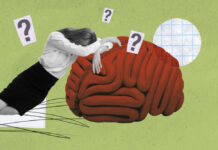While deficits in social cognition are often associated with and used to diagnose psychiatric disorders, new research suggests that the medications used to treat psychiatric disorders may also negatively affect social cognition.
Led by Zoe Haime at University College London, the researchers who conducted the study hypothesized that psychiatric medications that produce sedative effects might affect social cognition. They hoped their review would help clarify the nature of underlying deficits in social cognition in people diagnosed with psychiatric disorders to “help in the development of targeted treatments for social cognition, which may also improve social functioning and general outcomes.”
“There is good reason to believe that psychiatric medications may influence social cognition, especially those with sedative actions that are known to impair neurocognitive functioning in volunteers,” the authors write. “Clarifying these effects is important in order to understand the nature of social cognitive deficits in psychiatric disorders, and to evaluate the effects of treatment on social cognition and associated outcomes, such as social functioning.”
 Social cognition is defined as the “mental processes which underlie the ability to understand and act on the thought, intentions, and behaviors of others.” Psychiatric drugs, which work by altering specific neurotransmitter systems, have strong sedative effects and can cause permanent changes to the brain. Along with their sedative effects, psychiatric medications affect emotion and motivation and cause emotional blunting and loss of touch with oneself and others.
Social cognition is defined as the “mental processes which underlie the ability to understand and act on the thought, intentions, and behaviors of others.” Psychiatric drugs, which work by altering specific neurotransmitter systems, have strong sedative effects and can cause permanent changes to the brain. Along with their sedative effects, psychiatric medications affect emotion and motivation and cause emotional blunting and loss of touch with oneself and others.
As the authors note, the research on drug interactions with social cognition is largely limited to studies of benzodiazepines in healthy volunteers and studies of antipsychotics on patients with schizophrenia. After performing a systematic review of 2931 eligible papers, the researchers found that benzodiazepines administered to healthy volunteers cause significant impairments in emotion recognition social cognition tasks, suggesting that therapeutic doses impair emotion processing. In addition, some studies used neuroimaging to compare social cognition before and immediately after taking benzodiazepines and found that a single dose of diazepam resulted in attenuated responses to others’ emotions.
With respect to antipsychotic medications, one study found that higher doses of antipsychotics related to higher levels of social cognitive impairment in patients with schizophrenia. The authors note:
“Research on neurocognitive function suggests that antipsychotics, in particular, may have specifically detrimental effects in people with psychiatric disorders.”
Although further research on the effects of sedative medications on social cognition is needed to assess their effects on social cognition, the available research suggests a correlation between certain medications and impaired social cognition, with important implications for both diagnosis and treatment of psychiatric impairments. As the authors conclude:
“While deficits in social cognition have been identified in people with psychiatric diagnoses and are associated with impaired social functioning, we remain uncertain to what extent these are attributable to the effects of the disorder or the effects of its treatment.”
****
Haime, Z., Watson, A., Crellin, N., Marston, L., Joyce, E., Moncrieff, J. (2021). “A Systematic Review of the Effects of Psychiatric Medications on Social Cognition.” (Preprint). 10.21203/rs.3.rs-651572/v1(Link)















This becomes a problem of circular logic. Many writers and commenters here have pointed this out.
I have never seen the specific term “social cognition” used before, so this is an interesting slant on the problem that will possibly appeal to other researchers who are more familiar with these terms and concepts.
Of course, my major frustration continues to come from the focus on brain function and this-life causation. These factors both have much less importance than the field currently assigns to them. Not zero importance, just less. There are many other factors also at play. I have seem many credit Jung with at least being cognizant of these. Too bad that the fuller development of Jung’s ideas has been so thoroughly ignored.
Report comment
Antipsychotics effectively wipe people out of society, no question about it.
Report comment
Who’d have thought that drugs that cause brain damage would also cause problems with social functioning?
No worries, the docs can still say it’s because of the patient’s underlying mental illness. They can still put notes in the file like they did with me, “patient is thought to have poor judgment.” And since no one can prove different and the docs hold all the power, nothing is going to stop this train.
Report comment
You wrote “nothing is going to stop this train.”
There is some hope of genuine science (neurology) stopping the prescribing of psychiatric drugs.
Report comment
There is some hope of the fraud getting caught.
https://www.madinamerica.com/2021/06/stanford-psychiatrist-questions-use-neuroimaging-drug-development/
Stanford Psychiatrist Questions Use of Neuroimaging in Drug Development
Psychiatrist Alan Schatzberg claims that current neuroimaging techniques for assessing psychiatric drug effectiveness may be inadequate.
Report comment
This is both hilarious & tragic.
They need research to explain sedation & flat affect?
Report comment
I think that is what they are supposed to do: reduce your thinking power and get you out of society—that way, they can keep plying you with these psychiatric drugs. This is their tragic and seemingly nefarious goal. Thank you.
Report comment
Some think psychiatric drugs create zombies.
I think zombies create them, monsters prescribe them, and buffoons study them.
Report comment